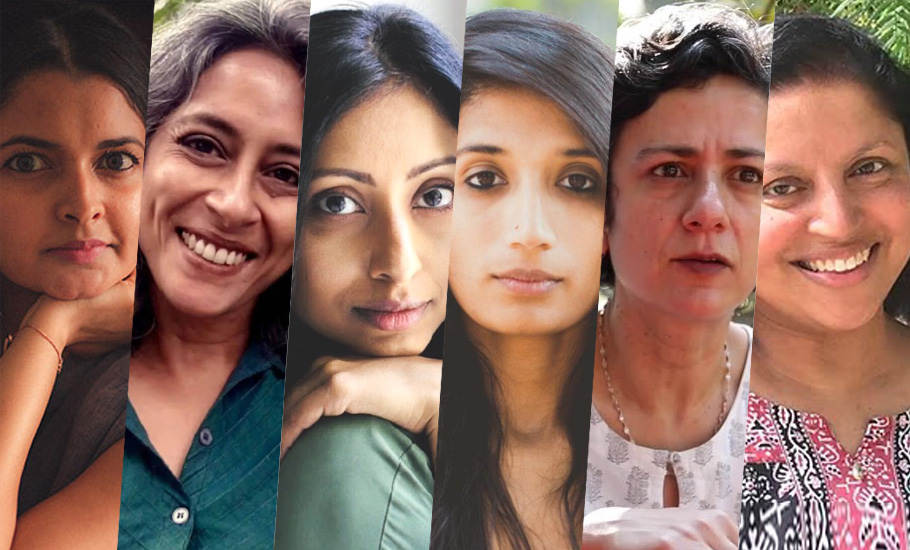
Six Indian women fiction writers who explore the complexities of motherhood

Motherhood has been a recurring theme in Indian novels in English, with authors exploring various aspects of the experience such as fertility issues, surrogacy, adoption, and the complexities of mother-daughter relationships. In recent years, Indian literature in English has seen a surge in novels that explore the complexities of motherhood, with many of them set in contemporary India.
These novels delve into the changing role of mothers in Indian society, and the challenges they face in balancing their personal ambitions and aspirations with their duties as mothers. Here is a look at the portrayal of mothers and motherhood in the works by six Indian women writers writing in English — these representations, in some way, also reflect the changing social and cultural landscape of India:
Avni Doshi (Burnt Sugar, Penguin Books, 2020): Avni Doshi’s debut novel Burnt Sugar (published in India by HarperCollins as The Girl in White Cotton) explores the complicated relationship between a mother and daughter, with motherhood at its core. The story follows Antara, a new mother, as she struggles to come to terms with her mother Tara’s descent into dementia. The novel portrays motherhood as a mutual thing, with both mother and daughter fighting for and against the roles they expected to have.
Also read: Pico Iyer broadens the idea of paradise, shows we are all bound up in our humanity
Doshi’s novel separates these women from their motherhoods and places them within a patriarchal system that they sometimes aren’t even aware of. Tara is a rebellious character who lives on the streets to spite her middle-class parents and runs away to a cult, abandoning her toddler to the attention of its leader. Instead, Antara learns about mothering from Kali Mata, a Pennsylvanian woman who is the nurturer for the cult leader’s many followers.

Despite the dominant female characters in the novel, they remain within a man’s world, which adds to the strain on their relationships. The portrayal of motherhood in Burnt Sugar offers a stark portrait of what can happen when one life begets another. While there is little joy to be found in the novel, Doshi offers searing truths about motherhood, womanhood, and madness that linger long after the story has ended.
Ratika Kapur (The Private Life of Mrs. Sharma, Bloomsbury, 2016): In Ratika Kapur’s novel, the protagonist, Mrs Renuka Sharma, is a middle-aged woman from Delhi who works as a receptionist at a doctor’s clinic to support her son and mother-in-law. She is a widow, and her husband’s untimely death has left her with a lot of responsibilities. The novel follows Mrs. Sharma’s everyday struggles, as she balances work, family, and personal desires.
Through Mrs. Sharma’s character, Kapur highlights the societal expectations of motherhood, which demand that women put their families first and neglect their own needs and desires. Mrs. Sharma’s relationship with her teenage son, Bobby, is central to the novel’s exploration of motherhood. Bobby is a typical teenager who is more interested in video games and hanging out with his friends than in his studies. Mrs. Sharma is constantly worried about his future and feels guilty that she cannot provide him with a better life.
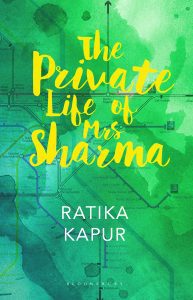
The novel also explores the tension between traditional and modern values in Indian society. Mrs. Sharma’s mother-in-law is a conservative woman who disapproves of her working outside the home and wearing western clothes. Mrs. Sharma, on the other hand, represents a modern Indian woman who is trying to break free from traditional gender roles. Kapur portrays motherhood as a complex and multifaceted experience that cannot be reduced to simplistic stereotypes.
Anindita Ghose (The Illuminated, HarperCollins India, 2021): Journalist-turned-author Anindita Ghose’s debut novel, The Illuminated, explores the complex dynamics of a mother-daughter relationship, particularly in the context of grief and loss. Shashi, the recently widowed mother, is struggling to come to terms with her loss while also navigating the challenges of being a single mother. Meanwhile, her daughter Tara is dealing with her own emotional turmoil and trying to find her place in the world. Through their individual journeys, Ghose delves into the intricacies of motherhood and the different ways in which women cope with difficult situations.
Also read: David Baldacci interview: ‘Writing has always been an addiction, not a means of earning’
One of the key themes of The Illuminated is the conflict between motherhood and personal aspirations. Shashi had to give up her PhD dreams to raise a family, and this decision has had a profound impact on her life. As a result, she often feels a sense of loss and regret, wondering if she could have achieved more if she had pursued her own ambitions. On the other hand, Tara is fiercely independent and determined to carve out her own path in life, even if it means going against her mother’s wishes. This tension between tradition and modernity, and between self-sacrifice and self-fulfillment, is a recurring motif throughout the novel.
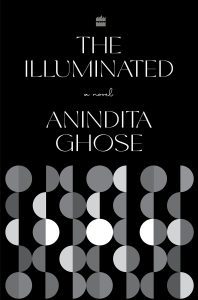
Another aspect of motherhood that Ghose explores in The Illuminated is the idea of maternal love and sacrifice. Despite their differences, Shashi and Tara share a deep bond, and their love for each other is evident throughout the book. However, this love is also tinged with pain and longing, as they struggle to come to terms with their shared loss. Ghose portrays the complexity of maternal love in a nuanced and sensitive way, highlighting both its beauty and its fragility.
Anuradha Roy (All the Lives We Never Lived, Hachette India, 2018): In the fourth novel by India’s literary lodestar, Anuradha Roy, motherhood is explored through the lens of Gayatri Sen Rosario, a mother who leaves her son behind to pursue her dreams and desires. As the story unfolds, it becomes clear that this decision came at a great cost, both for herself and for her son. Gayatri’s decision to leave her family behind is not easily understood by her son Myshkin, who is left traumatized by the scandal that ensues in their small Himalayan town.
As Myshkin grows up, he begins to uncover the complexities of his mother’s life and discovers a side of her that he never knew existed. Through Gayatri’s story, Roy delves into the themes of guilt, separation, and the pain of childhood trauma. The portrayal of Gayatri as a complex and multifaceted character is a testament to Roy’s writing, which effortlessly captures the nuances of human emotion.
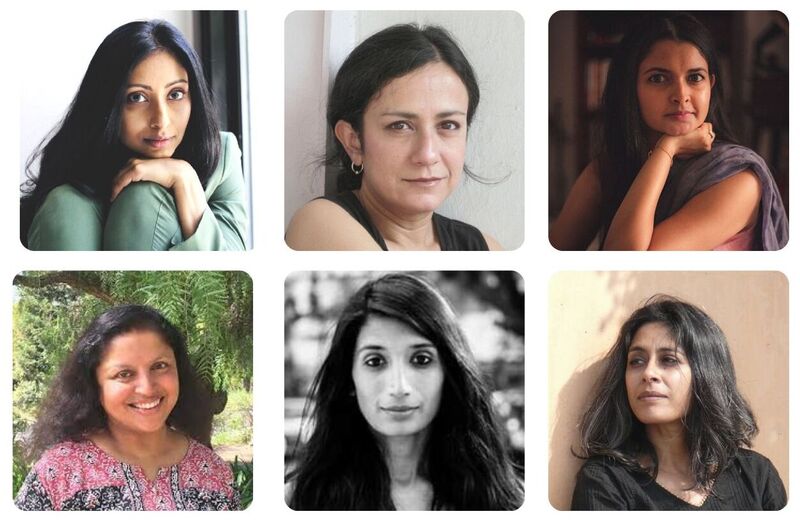
The novel also explores the impact of war and the colonial experience on individuals and families, highlighting the struggles faced by those caught in the crossfire. It is a poignant and thought-provoking exploration of motherhood and the sacrifices made by women in pursuit of their dreams. Written in Roy’s trademark beautiful prose, it’s a meditation on the deep bond between a mother and child, and the lasting impact it can have on both.
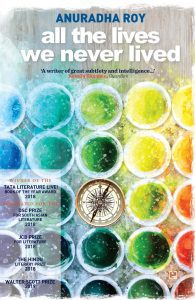
Madhuri Vijay (The Far Field, HarperCollins India, 2019): In Madhuri Vijay’s debut novel The Far Field, the winner of the JCB Prize for Literature 2019, the protagonist Shalini embarks on a journey to find Bashir, a travelling salesman who once visited her family when she was a child and whom she believes had an affair with her mother. Her mother has died, and Shalini’s subsequent depression and her father’s concern for her lead her to seek out Bashir, hoping to learn more about her mother’s life.
The novel begins with Shalini’s grief, but as she travels deeper into the villages of Kashmir, the story widens to reveal the complex political and religious conflicts of the region. Shalini’s journey is fraught with misunderstandings and unintentional harm, exposing the limitations of her privileged worldview. Vijay’s novel is a poignant exploration of the ripple effect of individual actions, as Shalini’s search for Bashir unwittingly disrupts the lives of those she encounters along the way.
Also read: Why Kannada writer UR Ananthamurthy did not want to live in Modi-ruled India
The novel also touches on the complexity of motherhood, as Shalini grapples with the memory of her own mother, who was both tender and vicious. Through Shalini’s journey, the novel examines the limits of empathy and understanding, as well as the dangers of romanticizing the lives of others.
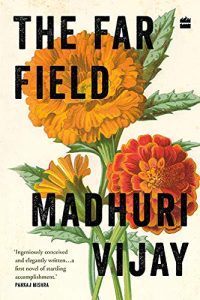
The novel’s setting in Kashmir adds an additional layer of complexity, as Shalini, who has never considered the contours of poverty, confronts the harsh realities of a region caught between outside agitators and foreign conquerors.
Devi S. Laskar (The Atlas of Reds and Blues, HarperCollins India, 2019): The debut novel by Devi S. Laskar,The Atlas of Reds and Blues tells the story of a woman known only as ‘Mother,’ who is shot by the police in her own driveway. As she lies dying, she reflects on her life as a mother and the challenges of raising her two daughters in a world that is hostile to their identity as people of colour. The novel explores the theme of motherhood in the context of racial and social justice, shedding light on the unique challenges faced by mothers of colour in contemporary America.
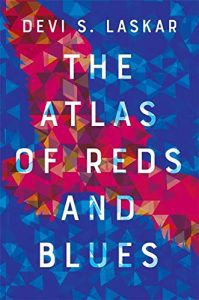
As she confronts the daily challenges of raising her children in a hostile environment in the South, Mother grapples with her own complicity in a system that oppresses people of colour. Laskar highlights the resilience and strength of women who refuse to accept the status quo and fight for a better future for their families and communities. Through Mother’s reflections on her life, Laskar presents a powerful critique of the ways in which society often fails mothers of colour.
Mother struggles to find support and understanding from the institutions and individuals that should be there to help her, and she is forced to navigate a world that constantly undermines her efforts to raise her daughters with dignity and respect. By foregrounding the experiences of a mother of colour, Laskar offers a compelling critique of the social and political structures that contribute to their marginalization.


